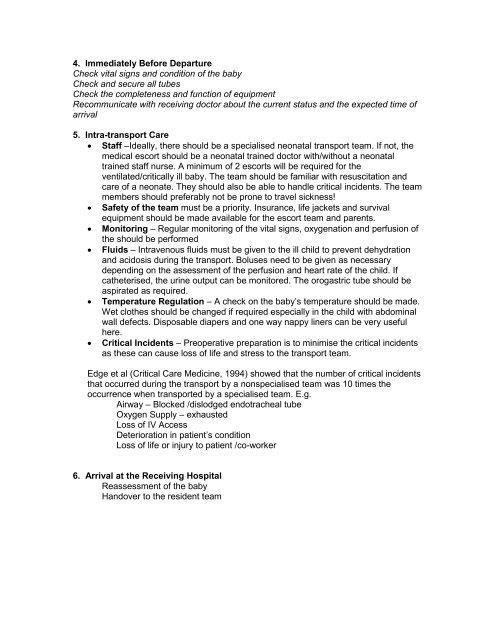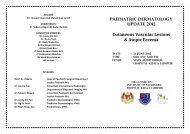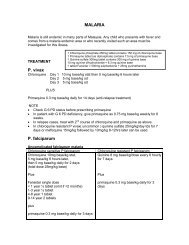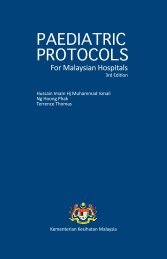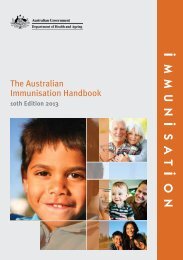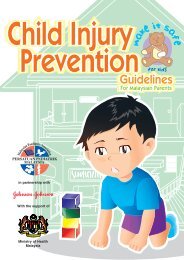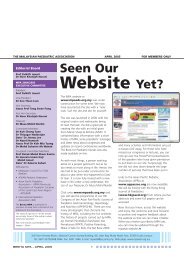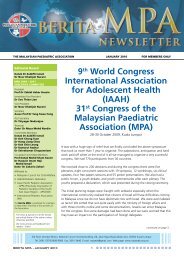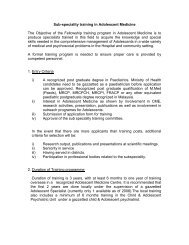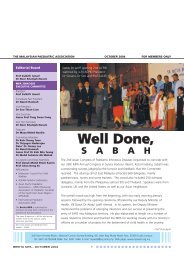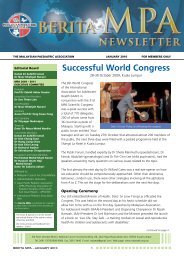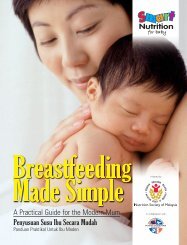Contents Chapter Topic Page Neonatology Respiratory Cardiology
Contents Chapter Topic Page Neonatology Respiratory Cardiology
Contents Chapter Topic Page Neonatology Respiratory Cardiology
Create successful ePaper yourself
Turn your PDF publications into a flip-book with our unique Google optimized e-Paper software.
4. Immediately Before Departure<br />
Check vital signs and condition of the baby<br />
Check and secure all tubes<br />
Check the completeness and function of equipment<br />
Recommunicate with receiving doctor about the current status and the expected time of<br />
arrival<br />
5. Intra-transport Care<br />
• Staff –Ideally, there should be a specialised neonatal transport team. If not, the<br />
medical escort should be a neonatal trained doctor with/without a neonatal<br />
trained staff nurse. A minimum of 2 escorts will be required for the<br />
ventilated/critically ill baby. The team should be familiar with resuscitation and<br />
care of a neonate. They should also be able to handle critical incidents. The team<br />
members should preferably not be prone to travel sickness!<br />
• Safety of the team must be a priority. Insurance, life jackets and survival<br />
equipment should be made available for the escort team and parents.<br />
• Monitoring – Regular monitoring of the vital signs, oxygenation and perfusion of<br />
the should be performed<br />
• Fluids – Intravenous fluids must be given to the ill child to prevent dehydration<br />
and acidosis during the transport. Boluses need to be given as necessary<br />
depending on the assessment of the perfusion and heart rate of the child. If<br />
catheterised, the urine output can be monitored. The orogastric tube should be<br />
aspirated as required.<br />
• Temperature Regulation – A check on the baby’s temperature should be made.<br />
Wet clothes should be changed if required especially in the child with abdominal<br />
wall defects. Disposable diapers and one way nappy liners can be very useful<br />
here.<br />
• Critical Incidents – Preoperative preparation is to minimise the critical incidents<br />
as these can cause loss of life and stress to the transport team.<br />
Edge et al (Critical Care Medicine, 1994) showed that the number of critical incidents<br />
that occurred during the transport by a nonspecialised team was 10 times the<br />
occurrence when transported by a specialised team. E.g.<br />
Airway – Blocked /dislodged endotracheal tube<br />
Oxygen Supply – exhausted<br />
Loss of IV Access<br />
Deterioration in patient’s condition<br />
Loss of life or injury to patient /co-worker<br />
6. Arrival at the Receiving Hospital<br />
Reassessment of the baby<br />
Handover to the resident team


